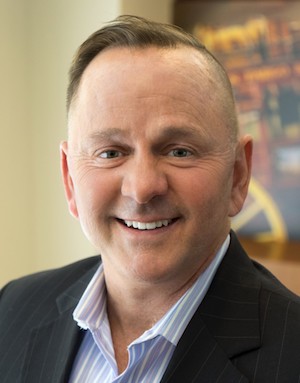The Journey to Becoming a Trusted Adviser
By Del Galloway, APR, Fellow PRSA
May 2020
Public relations is an exciting, dynamic profession — one that’s often on the cutting-edge of issues, opportunities and challenges. Our profession has the power to shape ideas, forge opinions and advance civil society.
Successful, senior-level communicators are known as counselors, thought leaders and trusted advisers — honorifics I aspired to when I began my career. Now, after nearly 38 years in the profession, through the rough-and-tumble of time and experience, I have arrived at a revered and welcome place that guides my point of view: I have become a trusted adviser. Early in your own career — or as your career begins — you might have believed, as I did, that becoming a trusted adviser was elusive, out of reach. Not so, as I have since learned.
My career has crossed a variety of sectors — agency, corporate, nonprofit and academic — and included many fascinating assignments: among them, the launch of a multinational company, the North American introduction of a European beer (a particularly fun piece of business), and campaigns focused on education, the environment, health, financial security and LGBTQ equality.
Learning from other leaders
Today I recognize my good fortune even more clearly — I’ve learned from the best. Early in my career, I experienced world-class leadership through the examples of industry titans Marilyn Laurie, Dick Martin, Bob Schauer and others who led public relations at AT&T.
As head of communications at American Transtech, an AT&T business unit, I met and collaborated regularly with these folks. They showed me firsthand what leadership looks like: uncompromising ethics, integrity, good judgment and guts. They taught me how to counsel clients and make tough decisions, to inform and influence — in other words, how to lead.
My turning point on the road to becoming a trusted adviser came in the early 1990s, when a new leader who greatly valued public relations was named president and CEO of AT&T American Transtech. She made me part of her leadership team, reporting to her directly. It was then that I realized my perspective was highly valued.
Through her example and those of other leaders — at Wells Fargo and through PRSA, other professional organizations and peers I am fortunate to call friends — I’ve experienced leadership up-close. Those experiences inform who I am today and shape my point of view. In retrospect, I realize that the role of trusted adviser had been forming in me for a long time, as if by karma. I suspect it will take shape in many of you, too.
Here are insights that might help you become a trusted PR adviser and have a successful career and better life:
- Be curious. It’s much more important to be interested than interesting.
- Have and share a point of view. Doing so builds your credibility and self-confidence.
- Be your authentic self. When you’re comfortable in your own skin, it allows others to do the same.
- Shape an organization’s culture. Recognize and navigate its current state and then positively influence its future.
- Be a “servant leader” — that is, one whose goal is to serve others. Invest in the common good by improving lives and strengthening communities.
I wish you well on your road to becoming a trusted adviser – as you create a bright future for yourself and our profession. The journey can be magical. Celebrate along the way.
Former PRSA Chairs Share Leadership Tips
During the PRSA 2019 International Conference in San Diego, Del Galloway, APR, Fellow PRSA, moderated a panel of respected PR executives sharing their journey from PR novice to trusted adviser.
Through personal stories and nearly 160 years of collective experience, the group — all past national Board chairs of PRSA — explored the attributes of a trusted adviser, as well as discussed multiple factors that move a professional into a sphere of significant leadership and influence.
The panelists were: Rosanna Fiske, APR, Fellow PRSA, Mickey Nall, APR, Fellow PRSA, and Cheryl Procter-Rogers, APR, Fellow PRSA.
Here are their tips to becoming a trusted adviser:
- Be inquisitive. Ask insightful, tough questions.
- Always be open to learning.
- Be persistent and consistent. Stay on it and deliver.
- Learn to listen really well.
- Understand the client’s business really well.
- Know your strengths and opportunities.
- Recognize your weaknesses and surround yourself with others with complementary talents.
- Know when to act fast and know when to take your time.
The group also offered input on when you know that you’ve become a trusted adviser:
- You’re asked to participate in meetings that aren’t necessarily about communications/PR.
- You’re asked to stay back or to have a separate call regarding a meeting you attended to discuss further.
- You’re asking questions that give the senior executive or leader pause.
- You often bring something to the conversation that no one else has brought up.
- You’re asked to share your perspective with a team that’s beyond the industry or the company.
- Legal calls you before they call the client/leader.
- Peers seek your counsel.
photo credit: huber & stark



